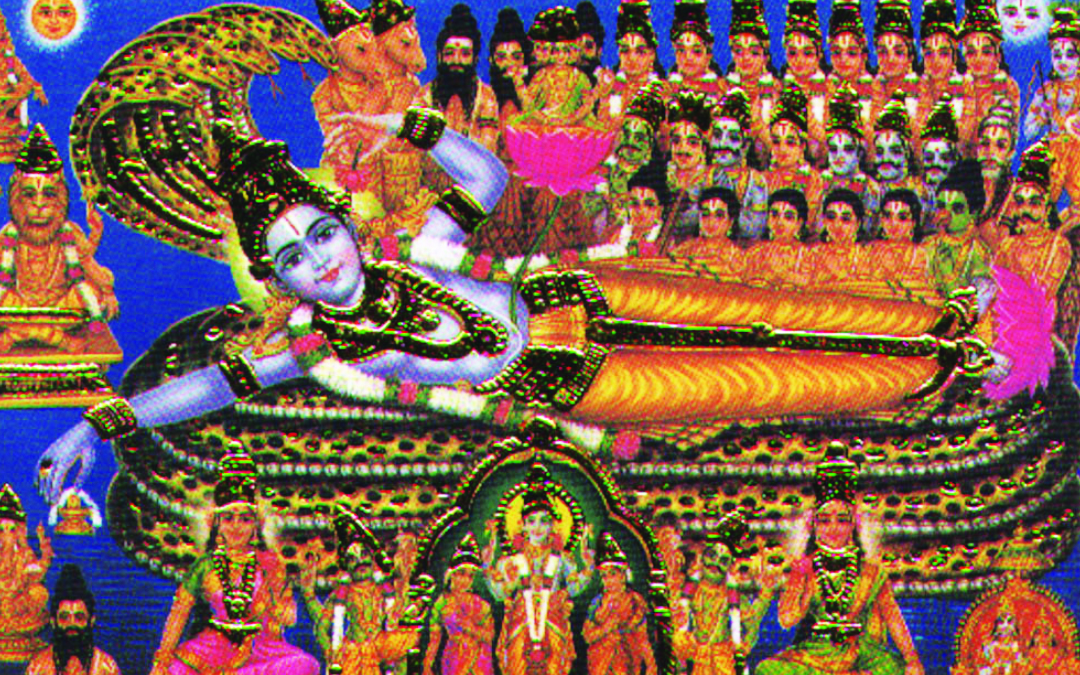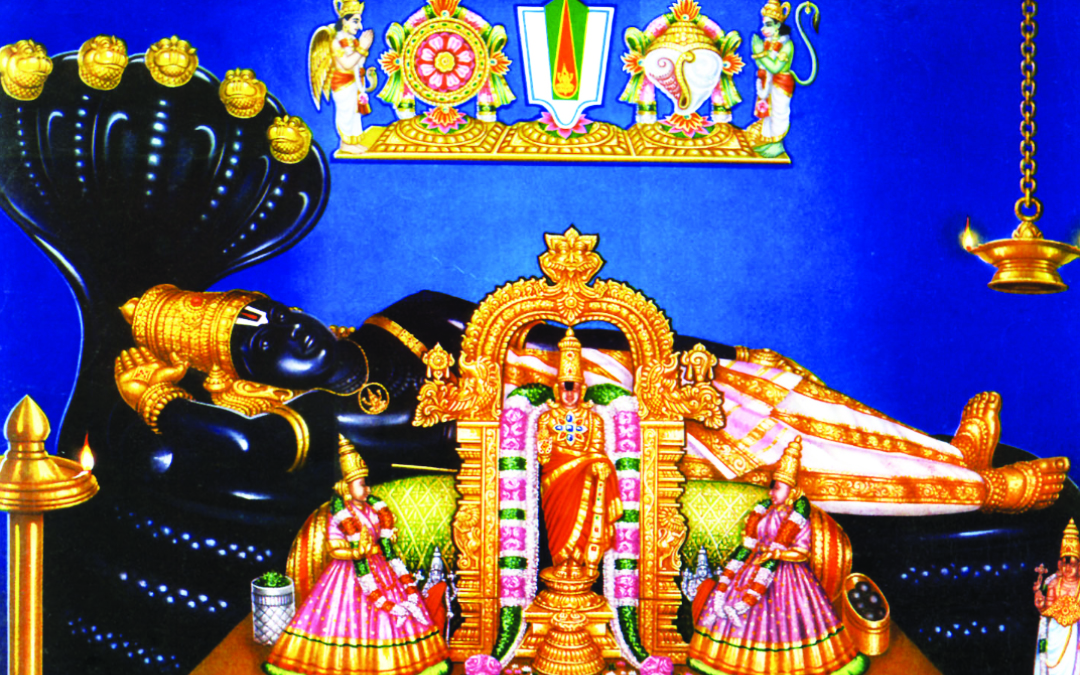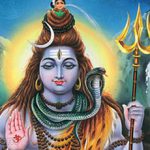Vaikunta Ekadasi is regarded as extremely auspicious for worshipping Lord Vishnu, and this occasion is also celebrated as a grand festival in all temples dedicated to Vishnu and his Avatars. Vaikunta Ekadasi is observed on the 11th lunar day of Ekadasi Thithi falling during the waxing Moon phase of Shukla Paksha in the Tamil months of Dhanur or Marghazhi (December–January). Chanting hymns, reading scriptures, offering prayers to the Lord in the temples, and observing austerities like fasting on this day are believed to relieve people of their sins and get them, divine blessings. There is also a belief that passing through the ‘Vaikuntha Dwar,’ a unique entry in the temple can ensure heavenly kingdom to the devotees.
Legend of Vaikunta Ekadasi
Muran was a mighty demon, who was playing havoc on heaven and earth, and in order to put an end to his atrocities, Lord Vishnu had to think of a novel plan. As a strategy, he withdrew into a cave in the Himalayan regions of Badrinath. Muran came chasing him there, and as he tried to kill the Lord who appeared to be deep in sleep. The Lord’s Shakti, the female power, emerged out of his body and burnt Muran completely to ashes, by her mere glance. Vishnu was pleased, named her as Ekadasi, and declared that whoever fasted on that day and offered worship to him, will be relieved of their sins and attain his own celestial abode, Vaikunta.
This happened on the Shukla Paksha Ekadasi of Dhanur month, and that day is observed with piety as Vaikunta Ekadasi.
Vaikunta Ekadasi Fasting
Fasting refers to abstinence from food or some kinds of food items. Medical systems including our own ancient Ayurveda are unanimous that this provides the much-needed rest to the digestive organs and relief to the other bodily system. Most of the diseases are believed to be digestion-related, and a healthy brain–function along with a proper digestive system can ensure good health for the people. Fasting can contribute immensely to this all-important digestion, tone up the related systems and thus provide a lot of physical benefits to us.

Further, Ekadasi is the 11th Thithi of both phases of the Moon, and on that occasion, the Moon forms a trine with the Sun and the earth. From then on, it starts impacting the liquids in our bodily system more and more. Thus, the Moon exercises much higher influence on us, from this 11th lunar day till the 5th day that comes after the following Full Moon or New Moon day. In other words, the body falls substantially into the magnetic pull of the Moon from the Ekadasi day, and this can hamper the digestive systems from secreting the right fluids in full measure, which are so essential to digest the food and assimilate their essence in our bodies. This can cause imbalances in the functions of digestion and lead to many undesirable conditions including the subpar functioning of the brain. The results can be poor memory, lack of clarity in thoughts and inadequate decision-making capacity.
Hence, fasting on a day like Vaikunta Ekadasi is believed to do a world of good to our bodily systems.
But the benefits of fasting can be much more, on the spiritual side. Accumulation of impurities can corrupt our consciousness, and fasting is believed to help in their clearance and the purification of the self.
While it is ideal to fast on all the Ekadasi days, which typically occurs 24 times a year, legends assert that fasting on Vaikunta Ekadasi is so sacred that it is as propitious as fasting on all the 23 other Ekadasis of the year.
Observance of the Fast
Vaikunta Ekadasi fasting should ideally begin on the previous day of Dasami itself when devotees can take only lunch, and skip food in the night or can take fruits and milk for dinner.
The Ekadasi day is meant for fasting, and prayers and worship. Even if people are unable to refrain entirely from food, they should make it a point to strictly avoid any form of cooked food, especially made of rice, grains, and cereals like wheat, and also vegetables, roots, and fruits. They should also avoid salt and spices, curd or buttermilk, and also beverages like coffee and tea. Some people observe a complete fast on the day, not taking even water or liquids, and this is known as the Nirjala Ekadasi Vrat. Devotees remain awake throughout the night; spend time in prayers, and in reading, reciting and listening to scriptures, and also visit temples for praying to Lord Vishnu.
Avoiding Grains
As per mythology, Muran is the demon, whose destruction is observed as Vaikunta Ekadasi. There is also a belief that this demon resides in rice and in other grains, and hence, these are strictly avoided on that sacred day.
Muran is also said to represent the undesirable qualities of Rajas and Tamas, which denote vices like arrogance, passion, inertia, etc. One has to overcome these attributes to reach Satva, the state of purity, which is a pre-requisite for one to attain ultimate liberation. So, by staying away from rice and grains on the Vaikunta Ekadasi day, we can insulate ourselves from negative tendencies and move towards self-realization.
Staying awake in that night can improve self-awareness, but consumption of rice and grains can add unnecessary load to our bodily systems, and make the night vigil difficult. Hence, rice and grains are avoided on the Ekadasi day, so that a favorable atmosphere is created for the mind to become still, merge with the self, link itself with divinity, and attain freedom and peace.



Your point of view caught my eye and was very interesting. Thanks. I have a question for you. https://accounts.binance.com/register?ref=P9L9FQKY